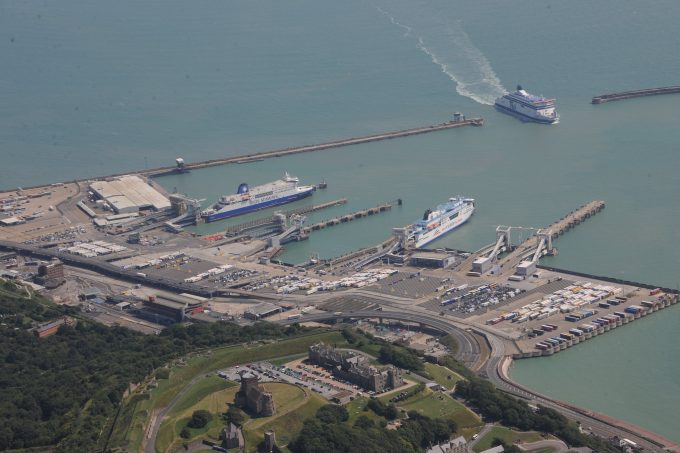Ripples from IT outage could spread through supply chains 'for weeks'
The disruption and delays to air cargo services due to the global IT outage has ...
TFII: SOLID AS USUALMAERSK: WEAKENINGF: FALLING OFF A CLIFFAAPL: 'BOTTLENECK IN MAINLAND CHINA'AAPL: CHINA TRENDSDHL: GROWTH CAPEXR: ANOTHER SOLID DELIVERYMFT: HERE COMES THE FALLDSV: LOOK AT SCHENKER PERFORMANCEUPS: A WAVE OF DOWNGRADES DSV: BARGAIN BINKNX: EARNINGS OUTODFL: RISING AND FALLING AND THEN RISING
TFII: SOLID AS USUALMAERSK: WEAKENINGF: FALLING OFF A CLIFFAAPL: 'BOTTLENECK IN MAINLAND CHINA'AAPL: CHINA TRENDSDHL: GROWTH CAPEXR: ANOTHER SOLID DELIVERYMFT: HERE COMES THE FALLDSV: LOOK AT SCHENKER PERFORMANCEUPS: A WAVE OF DOWNGRADES DSV: BARGAIN BINKNX: EARNINGS OUTODFL: RISING AND FALLING AND THEN RISING

European ferry operator DFDS has reported significant growth in revenue and pre-tax profits, leading a Dkr300m ($43m) share buy-back offer, but volumes on the Dover Straits have been severely hit.
According to the Danish carrier’s 2022 financial report, volumes on the Channel fell 20.8%, as traffic generally on the trade fell 9%, and with extra capacity arriving. However, DFDS’s ebitda on the route, Dkr130m, had increased due to the return of passenger numbers.
This decline in freight volumes has continued into 2023, with January figures showing a further 6% year-on-year fall. And DFDS said its North Sea volumes also fell, by 3.7%, due to the decline in automotive exports from Sweden.
Overall, DFDS revenues increased 47%, to Dkr27bn, with ebitda up 45%, to Dkr5bn, with company forecasting a similar result for this year.
CEO Torben Carlsen said: “Despite headwinds in certain areas, our business performed very well in 2022. As we increase the return of cash to shareholders, we continue to see great potential to strengthen and grow our network further in the coming years.”
The strong result for DFDS across Europe allowed the company to return up to Dkr586m to shareholders, which includes a Dkr286m dividend and Dkr300m in share buy-backs, which will be structured as an auction, allowing shareholders to sell shares to DFDS with an aggregate value of Dkr300m. The offer is open until 21 February.
Meanwhile, ferry operators in Dover and Eurotunnel have seen the EU’s entry/exit scheme (EES), which will include facial recognition, fingerprinting and questions answered on an iPad, all overseen by a French border officer, could see some delays when introduced.
However, the date of introduction, originally expected last year and delayed to May, has again been delayed to the end of this year.Emma Ward, COO at Dover, told The Loadstar: “When the EES is introduced there will be a huge hump [in delays for the tests], then it will all level out.”
She explained that the initial pre-lodged and verified information would last for three years, but for frequent users, such as truck drivers, it would roll over, making subsequent use of the EES less problematic.
Doug Bannister, CEO, Port of Dover, told The Loadstar: “Over the coming months, alongside other UK and European transport businesses, we will be continuing our work with the relevant authorities seeking a workable solution across all modes of travel for British passport holders.”
Comment on this article